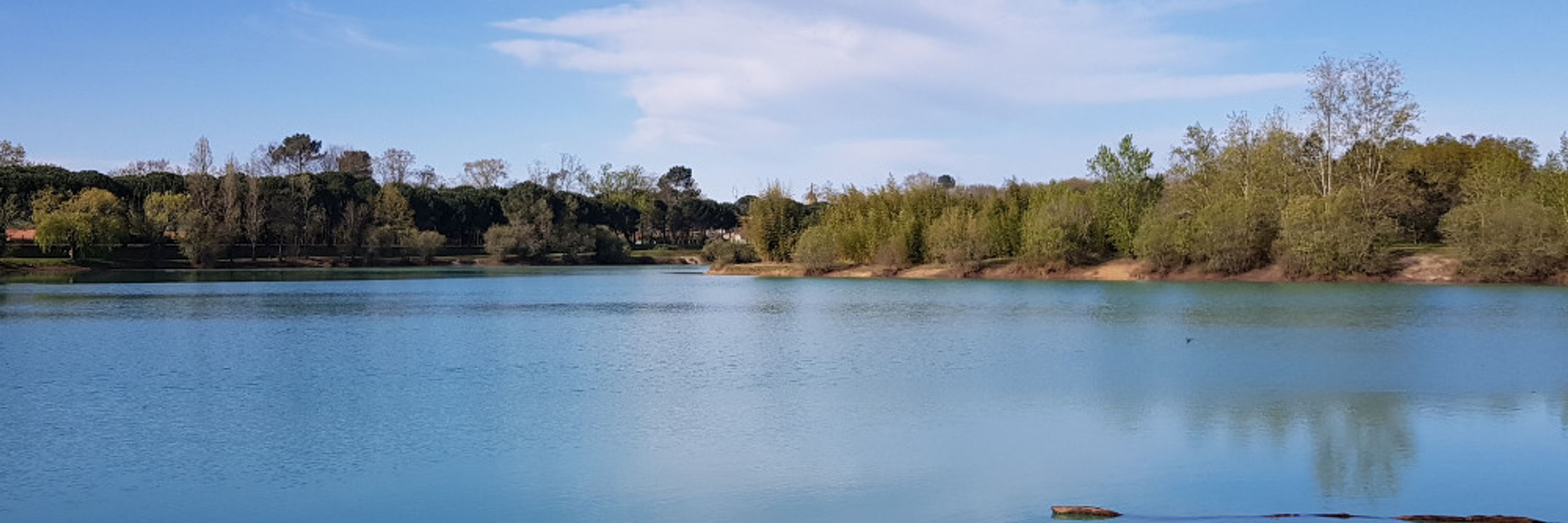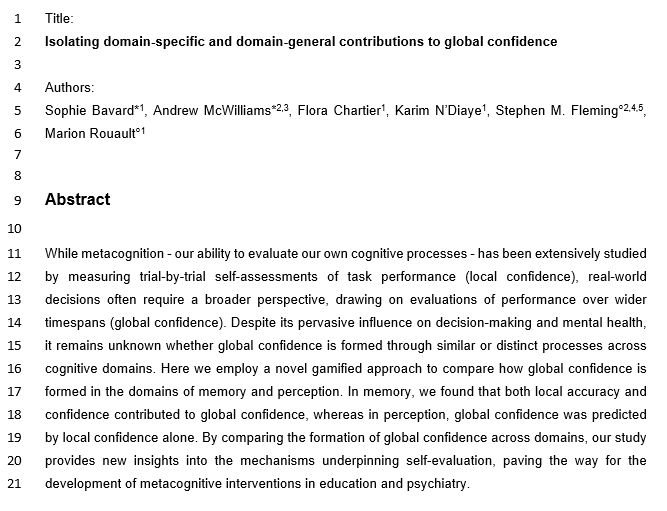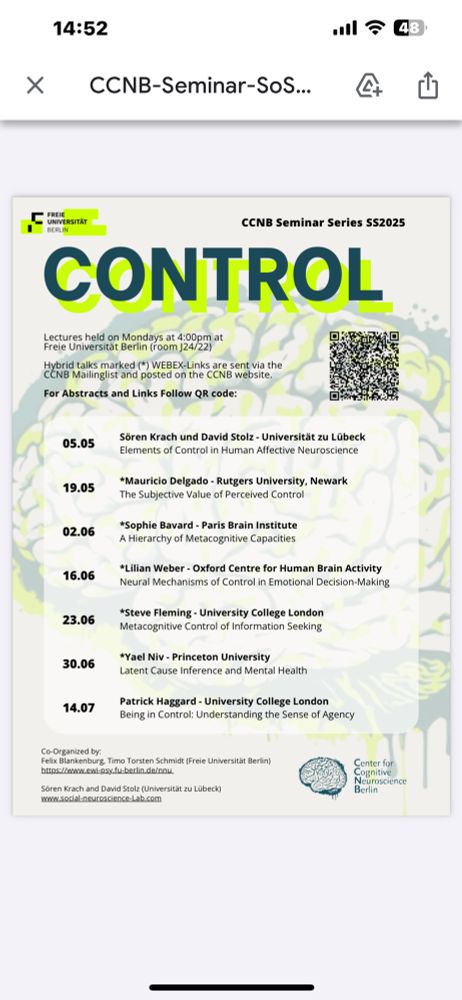

Very happy to share our latest work on metacognition with M. Rouault, A. McWilliams, F. Chartier, @kndiaye.bsky.social and @smfleming.bsky.social where we identify contributors to self-performance estimates across memory and perception domains 👇
osf.io/preprints/ps...
Why is cognitive effort experienced as costly?
(or why does it hurt to think)
never written a review paper before in my life, that was a new and unusual experience

Why is cognitive effort experienced as costly?
(or why does it hurt to think)
never written a review paper before in my life, that was a new and unusual experience
#interoception #neuroskyence

#interoception #neuroskyence
@annalinavmayer.bsky.social and team members together with @tobikube.bsky.social
💫
„Self-esteem modulates beneficial causal attributions in the formation of novel self-beliefs“
#affectedbeliefs #sociallearning #beliefformation
www.biorxiv.org/content/10.1...

@annalinavmayer.bsky.social and team members together with @tobikube.bsky.social
💫
„Self-esteem modulates beneficial causal attributions in the formation of novel self-beliefs“
#affectedbeliefs #sociallearning #beliefformation
www.biorxiv.org/content/10.1...
Very happy to share our latest work on metacognition with M. Rouault, A. McWilliams, F. Chartier, @kndiaye.bsky.social and @smfleming.bsky.social where we identify contributors to self-performance estimates across memory and perception domains 👇
osf.io/preprints/ps...

Very happy to share our latest work on metacognition with M. Rouault, A. McWilliams, F. Chartier, @kndiaye.bsky.social and @smfleming.bsky.social where we identify contributors to self-performance estimates across memory and perception domains 👇
osf.io/preprints/ps...
Human reinforcement learning processes and biases: computational characterization and possible applications to behavioral public policy
🔗 link.springer.com/article/10.1...

Human reinforcement learning processes and biases: computational characterization and possible applications to behavioral public policy
🔗 link.springer.com/article/10.1...
On Tuesday, meet me at poster A105 to learn about a huge value-learning dataset we are putting together (so far 3800 human subjects). Turns out, range adaptation is all the rage!

On Tuesday, meet me at poster A105 to learn about a huge value-learning dataset we are putting together (so far 3800 human subjects). Turns out, range adaptation is all the rage!
Starting in May, the @ccnberlin.bsky.social seminar series by Felix Blankenburg & Timo Schmidt (FU Berlin) is co-hosted by @david-s-stolz.bsky.social David Stolz (Universtiät Lübeck) and myself.
The topic of all talks is: "CONTROL"

Starting in May, the @ccnberlin.bsky.social seminar series by Felix Blankenburg & Timo Schmidt (FU Berlin) is co-hosted by @david-s-stolz.bsky.social David Stolz (Universtiät Lübeck) and myself.
The topic of all talks is: "CONTROL"
www.tu-darmstadt.de/universitaet...

www.tu-darmstadt.de/universitaet...

